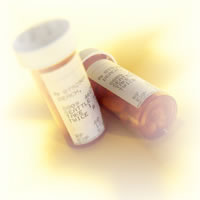How to right buying drugs on internet
The most important enzymes in the liver that metabolize drugs are called the cytochrome P450 family of enzymes. These enzymes break down drugs when they pass through the liver or small intestine. It used to be that the only way to test for drug interactions was in people. Now drug companies can take five test tubes with the five major pathways for metabolism and put their drugs in to see whether it's metabolized by CYP450. This allows to generate a list of possible interactions based on their findings. Before use a medicine make sure you understand the directions; ask your doctor if you have questions or concerns. Always double check that you have the right medicine. Ask your doctor if there is anything you can do to minimize side effects, such as eating before you take a medicine to reduce stomach upset. |
Root cause of anxiety disorders
If you have been excessively worried about a number of everyday problems for at least six months and have at least six of the common symptoms of anxiety listed earlier, you may have generalized anxiety disorder. Check with your family physician or mental- health professional. Generalized anxiety disorder is highly treatable. There's little doubt that all our thoughts and feelings are rooted in transmissions between nerve cells in the brain. These signals are passed from cell to cell by chemical neurotransmitters released at the synapse (tiny gap) between one cell and the next. 1. Remember that though your feelings and symptoms are very frightening, they are not dangerous or harmful. 2. Understand that what you are experiencing is an exaggeration of your normal bodily reactions to stress. 3. Do not fight your feelings or try to wish them away. The more you are willing to face them, the less intense they will become. 4. Do not add to your panic by thinking about what "might" happen. 5. Stay in the present. Notice what is really happening to you as opposed to what you think might happen. 6. Label your fear level from zero to 10 and watch it go up and down. Notice that it does not stay at a very high level for more than a few seconds. 7. When the fear begins to trigger "what if" thinking, focus on and carry out a simple and manageable task such as counting backwards from 100 by threes or snapping a rubber band on your wrist. 8. Notice that when you stop adding frightening thoughts to your fear, it begins to fade. 9. When the fear comes, expect and accept it. Wait and give it time to pass without running away from it. 10. Be proud of the progress you make, and think about how good you will feel when you succeed this time. |
Sexual disorders
An erection occurs when the nervous system activates a rapid increase in blood flow. The vascular muscle in the spongy area becomes engorged with blood and the outflow of blood is cut off. An erection can occur as a reflex as we see in spinal cord patients, or can be caused by psychogenic (originating in the mind) stimulation. Numerous sexual stimuli are processed by the brain and transmitted to the penis via the nervous system. Erections can change over time, sometimes stronger or weaker than other times. When men are in their teens they often have little control over their erections and obtain erections when not in a sexual situation. For most men this stops in their late teens to early twenties. As men get older, erections may not always be obtained when they want one. Almost every man has the occasional time when their erection is less strong than they would like but sometimes it becomes a problem. There are many effective treatments for erectile dysfunction. The most popular option is a class of drugs called phosphodiesterase type 5 (PDE5) inhibitors, which includes sildenafil (Viagra), vardenafil (Levitra) and tadalafil (Cialis). These drugs, taken in pill form from zero to 60 minutes before sexual activity, work in approximately 70 percent of men, though they are less effective in men with neurological causes of erectile dysfunction such as nerve damage from prostate surgery, diabetes or spinal cord injury. If Sildenafil (Viagra), vardenafil (Levitra) and tadalafil (Cialis) drugs don't work or cannot be used because of potential side effects, your doctor can recommend other therapies. The drug alprostadil (Caverject, Edex, Muse) causes blood vessels to widen. This can allow blood to flow more freely in the penis, leading to an erection. The drug can be injected with a tiny needle, or a small pellet (suppository) can be inserted into the opening of the penis. Suppositories like this are effective in approximately two-thirds of men. Injections are effective about 80 percent of the time. |
|
|
Read our other articles:
What is Hoodia gordonii?
Grow up your wishes for weight loss
Hair care tips
Skin care solutions
Don't fear dentistry
What are the symptoms of menopause?